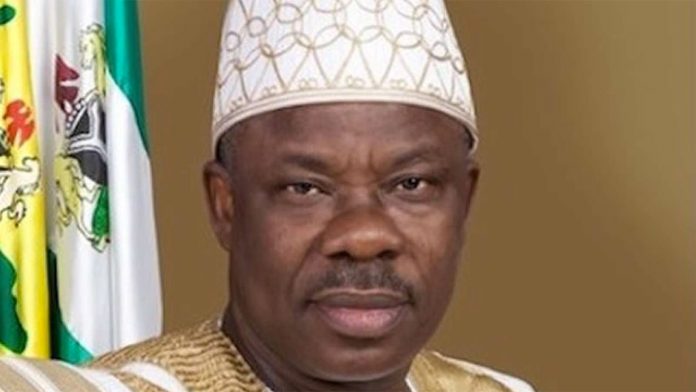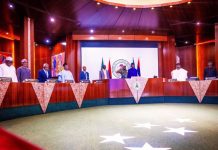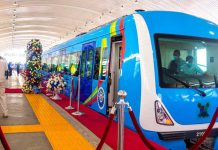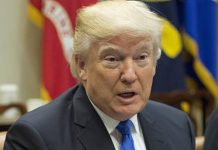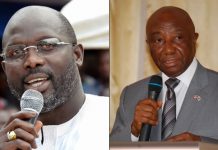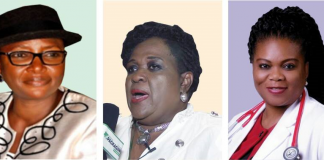Ibikunle Amosun (born, 25 January 1958) is a Nigerian politician who was elected senator for the Ogun Central district of Ogun State, Nigeria in April 2003. In April 2007 he made an unsuccessful bid to be elected governor of Ogun State. He ran for governor again on 2011, and this time was elected on the platform of the Action Congress of Nigeria (ACN). He ran for re-election under the All Progressives Congress in 2015 and won. He was sworn into office for a second term on May 29, 2015.
Amosun attended primary school at African Church Primary school in Abeokuta (1965–1970), and then African Church Grammar school, Abeokuta (1971 – 1977). He then went to Ogun State Polytechnic, graduating with a Higher National Diploma, HND, in 1983. Amosun gained an Associate membership of the Institute of Chartered Accountants of Nigeria (ICAN) in 1990. He became a fellow of the Institute in 1996. He also became an Associate member of the Chartered Institute of Taxation of Nigeria (1998).
Amosun began his career as an audit trainee with Lanre Aremu & Co. (Chartered Accountants) 1984. Later he joined XtraEdge Consulting as a managing consultant. From 1990 he was Principal partner of Ibikunle Amosun & Co. (Chartered Accountants) in Lagos. Amosun went to the University of Westminster in London, United Kingdom, where he acquired a Master of Arts in International Finance in 2000.
In April 2003, Ibikunle Amosun was elected to the senatorial seat of Ogun Central Senatorial district. His bid to become Governor of Ogun State in April 2007, on the platform of the All Nigeria People’s Party (ANPP) failed as he was defeated by Governor Gbenga Daniel.
Governor Ibikunle Amosun, who is generally referred to as a lover of infrastructures, has been widely credited for establishing various meaningful industries in his tenure at the helm of affairs in the state. Ogun state indigenes score him pass marks on development. He has been urging Nigerians, especially wealthy individuals, government and corporations to support the growth of youths by supporting institutions that train people to be self-reliant in order to develop the state further.






